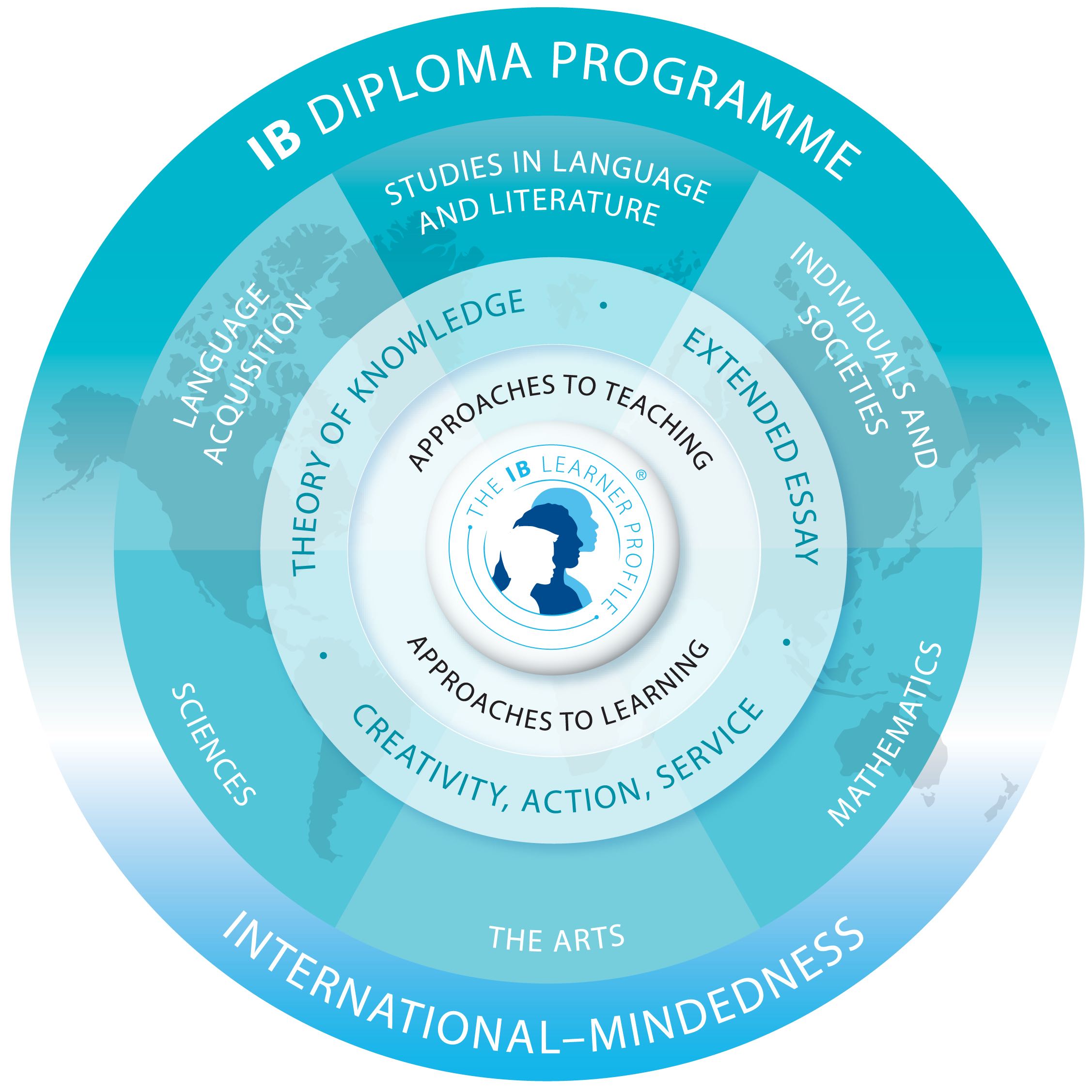IB - DIPLOMA
The International Baccalaureate (IB) Diploma Programme is meant for the students of age 16 to 19. It is a challenging two-year curriculum that leads to the award of the IB Diploma which is widely recognized by the world's leading universities.
In this programme, the students get to know, not only the 'Why' of things but also the 'How' of things happening around them. The IB curriculum is represented below:

A student has to choose 6 subjects, one subject from each group. Out of these 6 subjects, a minimum of 3 and a maximum of 4 subjects must be at Higher Level (HL) and the remaining at Standard Level (SL).
The core of the IB curriculum consists of Extended Essay, Theory of Knowledge and CAS (Creativity, Action and Service) which are unique to the IB curriculum and compulsory for all Diploma students.
The students are assessed on the basis of external and internal assessments. Internal assessment is based on Projects, Oral presentation, Commentaries, Practical Investigations that are done over the duration of the Diploma Programme. The weightage of the Internal Assessment ranges from 20% to 30% depending on the subject.
Performance in each of the six IB subjects is graded on a scale of 1 point (minimum) to 7 points (maximum). A maximum of 3 points is awarded for combined performance in 'Theory of Knowledge' and 'Extended Essay'. The maximum Diploma Programme point score is 45.
The following are the subjects offered in the school under each group. The course combinations offered depend upon the number of students opting for any particular subject. To know more click on the subjects.
The general requirement of IB is that each student should choose one subject each from each of the groups above. However, a student may choose an additional subject from groups 3 or 4 instead of a group 6 subject. Out of the six subjects chosen, at least three and a maximum of four subjects must at Higher Level and the remaining subjects must be at Standard Level.
Parents are advised to do their own research on the admission requirements at the leading universities before deciding on the choice of subjects for the IB diploma programme.
The IB curriculum is accepted by all the Indian Universities
(http://www.ibo.org/country/universities_rec.cfm?country_code=India)
and is recognized by the World Universities Forum. This makes the students eligible to seek admission in any University in India or abroad. Please visit www.ibo.org for more details about IB Diploma Programme
One of the primary teaching methods adopted by the teachers is to present contexts and situations to the students so that the issues, concepts and other dimensions involved are explored and uncovered in the classes. Value based and integrated method of teaching is used.
The CIRS way of rendering the IB course has many positives.
- All the teachers are IB trained and many of them are IB Examiners.
- Value and Culture based education with latest methodology and technology is speciality of CIRS.
- Being a Residential School, more time is available for interaction between the teachers and the students. This enables extra training for the students.
- The school protects the student from distraction of parties, television, idleness and other abuses. CIRS provides a safe and friendly environment.
- SAT training is arranged for the IB students in the campus.
- The students are also guided by a counselor for higher studies in India and aboard.
IB Learners Profile
The aim of all IB programmes is to develop internationally minded people who, recognizing their common humanity and shared guardianship of the planet help to create a better and more peaceful world.
IB learners strive to be:
- Inquirers
- Knowledgeable
- Thinkers
- Communicators
- Principled
- Open-minded
- Caring
- Risk-takers
- Balanced
- Reflective
More About IB
Visit :http://www.ibo.org/programmes/documents/learner_profile_en.pdf for more information on IB learner profile.